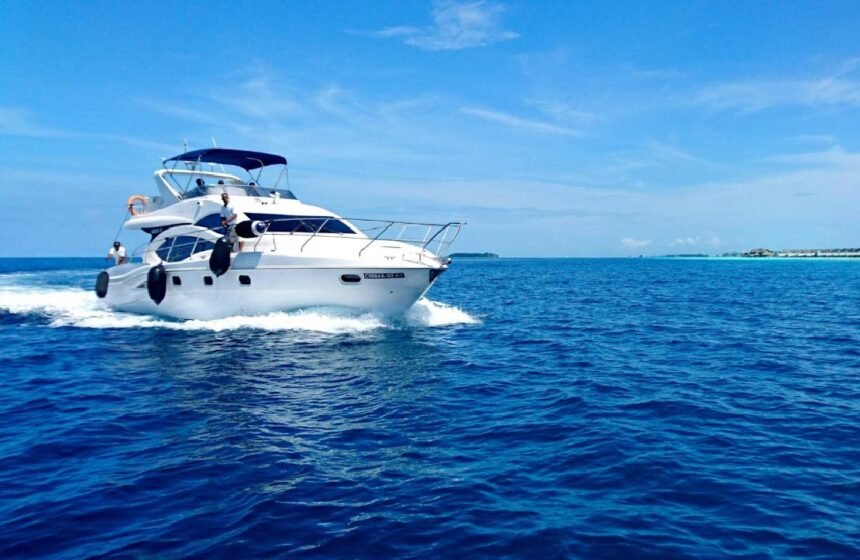Rising seas, stronger storms, and shifting coastlines-climate change isn’t just a problem for scientists. It’s rocking the marine insurance industry, too.
Wild weather means more considerable risks, higher costs, and more claims. Insurers are adjusting models, tweaking policies, and bracing for impact. Even ships face rougher waters.
So can marine insurers stay afloat, or will they go under? Let’s explore how climate change is shaking up coverage, premiums, and the future of maritime insurance.
Increasing Frequency of Natural Disasters
Severe storms, hurricanes, and floods are happening more often. This creates big problems for marine insurance.
More claims mean:
- higher payouts
- rising premiums
- stricter coverage terms
Even coastal infrastructure, ports, and vessels are all at greater risk of damage. Insurers must constantly update their risk models to keep up with shifting weather patterns.
In some areas, coverage is harder to get because insurers want to limit risk. The growing unpredictability of natural disasters forces insurers and policyholders to rethink protection strategies.
This is why preparing for extreme weather is no longer optional. It’s a necessity to safeguard maritime assets.
Impact on Underwriting Processes
Underwriters face new challenges as traditional risk assessment methods struggle to keep up with climate change. Historical data is less reliable when storms are intensifying and sea levels are rising.
To assess risks accurately, insurers now rely more on:
- real-time data
- AI-driven models
- satellite technology
Some policies require stricter safety measures or higher deductibles to offset potential losses. For instance, you need to learn more about boat insurance in Florida if you own a vessel in a hurricane-prone area, as insurers may impose specific conditions to provide coverage.
The underwriting process is evolving to manage these growing risks effectively.
Effects on Policy Types and Coverage Limits
As risks grow, insurers change coverage limits and policy rules to reduce losses. Some policies no longer cover certain natural disasters. Others require higher deductibles for storm damage.
Premiums are rising, especially for vessels and ports in risky areas. Policyholders must check their coverage to avoid gaps. Insurers also lower payout caps for weather-related damage, making full recovery harder.
To adjust, the industry is creating flexible policies with climate-related terms. These policies help policyholders get protection in a changing world. Staying informed and choosing the right coverage is now more important than ever.
Increased Regulatory Pressure
- Governments are tightening regulations as climate risks grow. Insurers must follow new rules on:
- financial stability
- risk reporting
- climate impact disclosures
Some regions even require companies to prove they can handle weather-related losses. Failure to meet these standards can lead to fines or restrictions on business operations. These changes push insurers to improve their risk assessments and pricing strategies.
Additionally, some laws require clearer policy terms and stronger consumer protections. Insurers must balance compliance with staying profitable. As rules continue to evolve, the industry must stay flexible and proactive.
Market Competition and Pricing Strategies
Risk-based pricing is becoming more common. This is where premiums adjust based on location and weather patterns. Yet, discounts may be available for vessels with advanced safety features or eco-friendly upgrades.
To stand out, insurers must offer strong protection and fair pricing. High premiums can push customers away, but low rates may not cover increasing risks. Some bundle coverage options or loyalty incentives to keep clients.
As extreme weather events continue, companies must refine their pricing strategies to stay competitive while ensuring financial stability.
Global Supply Chain Disruptions
Extreme weather events are disrupting global supply chains. It creates financial losses for businesses and insurers because of:
- flooded ports
- damaged vessels
- delayed shipments
Storms and rising sea levels also make shipping routes unpredictable, increasing risks for cargo owners. Insurers must adapt by offering policies that cover supply chain disruptions, helping businesses recover from unexpected delays.
Some are diversifying shipping routes or using more resilient infrastructure. Insurers play a key role by adjusting coverage to meet these new challenges. The industry must stay ahead of changing conditions to keep global trade moving.
The Role of Technology and Innovation
Technology is helping marine insurers manage climate risks more effectively. AI-driven models and satellite data improve risk assessments. This makes policies more accurate.
Real-time weather tracking helps insurers predict potential threats and adjust coverage accordingly. Digital platforms also speed up claims processing, reducing delays for policyholders.
Smart sensors on vessels and ports provide valuable data on environmental conditions. Blockchain technology is improving transparency in policy management and fraud prevention.
These innovations create a more efficient and responsive insurance industry. As climate challenges grow, insurers must continue investing in technology. This will be key to keeping the industry stable and reliable.
Emphasizing Sustainability and Climate Resilience
Marine insurers are focusing more on sustainability to reduce long-term risks. Companies now offer incentives for:
- eco-friendly ships
- resilient port infrastructure
- carbon reduction efforts
Building climate resilience is also a priority. Insurers are working with businesses to develop strategies that protect against extreme weather. To help lower damage and insurance costs, businesses must utilize:
- durable construction materials
- better emergency plans
- smartest risk management
Some insurers offer lower premiums for vessels that use cleaner energy or follow climate-safe practices. Supporting sustainability helps prevent future losses instead of just paying for damages later.
Collaboration Between Insurers and Governments
Insurers and governments must work together to manage climate risks. Governments create regulations to ensure insurers remain stable during extreme weather events.
They also invest in well-built infrastructure to reduce damage from storms and floods. Insurers provide data and risk analysis to help shape better policies. By sharing information, both sides can improve disaster response and long-term planning.
Public-private partnerships can also fund climate resilience projects. When insurers and governments collaborate, they create a more secure system that protects businesses, individuals, and the global economy.
Understanding Climate Change and Its Effect on Marine Insurance
Climate change is reshaping the marine insurance industry, bringing new risks and challenges. Insurers, businesses, and policymakers must adapt to stay protected. Stay informed, review your policies, and explore climate-resilient solutions.
Don’t wait until it’s too late! Talk to your insurer, assess your risks, and invest in sustainable practices today. The future of marine insurance starts here.
For More Information Visit Timelymagazine








